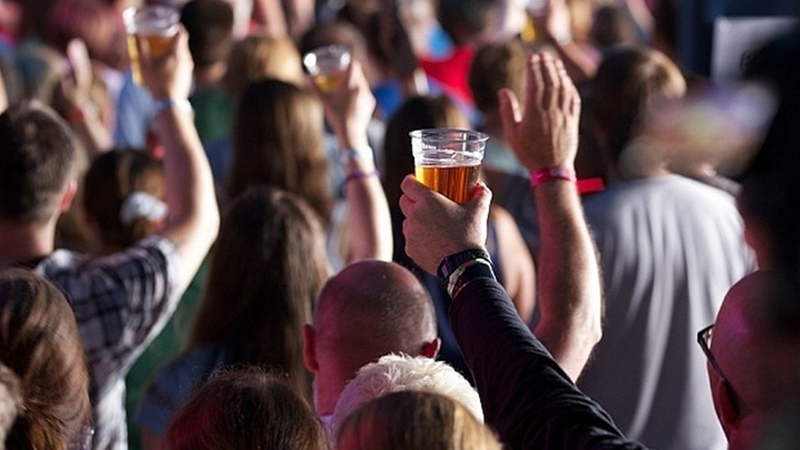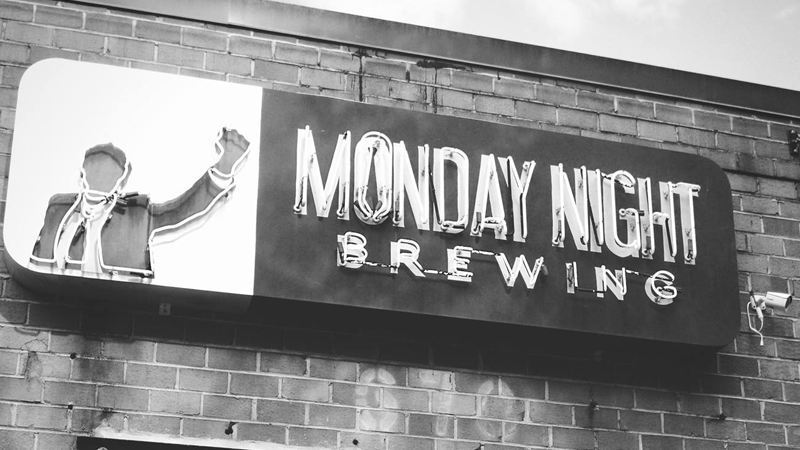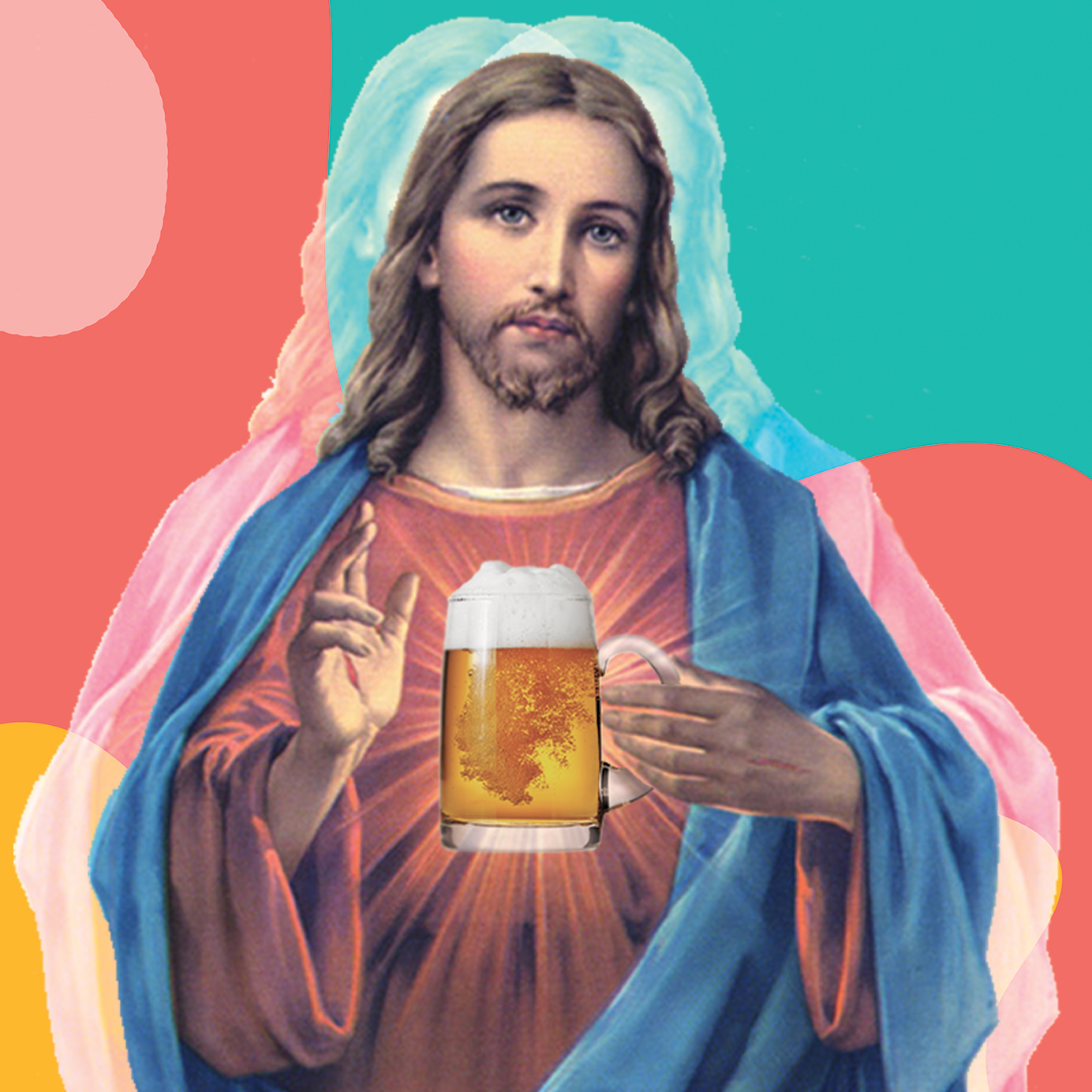This month, the Greater Purpose Community Church in Santa Cruz, Calif., announced it will be serving beer at services and opening a brewery next summer.
The news received its fair share of backlash but Chris VanHall, Greater Purpose Community Church pastor, stands by his choice. “There’s nothing in the Bible that says you can’t drink alcohol in a responsible manner,” he said.
VanHall’s argument may seem curious to abstinent Christians, but his future church-slash-brewery could be a saving grace for a struggling sector. The Christian population in the U.S. declined by nearly 8 percent between 2007 and 2014, and the number of adults who identify as religiously unaffiliated is growing. This is particularly true among aging millennials.
Churches are looking for new ways to reach young audiences. One strategy that’s resonating with young folks is beer. Concepts like Church-in-a-Pub, Beer and Hymns, and podcasts-cum-events like Brew Theology and Homebrewed Christianity are serving beer geekery with a side of Scripture, and they’re on the rise.
Breweries are combining faith and hops, too, providing a sense of community to patrons that previous generations of religiously observant Americans found in houses of worship. These are no modest mom-and-pops — they’re regionally and nationally award-winning brands — and they’re expanding. The craft brewery is, perhaps, the new church.

Ale as Old as Time
“We’re not trying to force a message on people,” Spencer Nix, CEO and co-founder of Reformation Brewing, says. “We’re trying to live out our values and our vision.”
Jeff Heck, CEO and co-founder of Monday Night Brewing, agrees. “Our posture going into a neighborhood is not like, ‘We’re going to be the savior of this neighborhood.’ Instead, we’re coming in and we’re trying to ask the question, ‘What does the neighborhood need?’”
Nix and Heck are part of a growing crop of Christian craft brewers creating secular spaces to unite disparate communities over beer. Both are located in America’s Bible Belt, where churches are “still highly segregated,” Nix says. “We have the black church and the white church and the Korean church, but very seldom do you see them all coming together,” Nix, a former pastor of 10 years, says. “But you go to your local brewery and you’ll see a mishmash of diversity, which I think is a pretty beautiful thing.”
Monday Night was borne of a Bible study, and its partners were involved in a local church plant, which is essentially a startup church industry of sorts created by evangelical Christians, Silicon Valley-style. Heck isn’t the only one who sees a parallel here: Ben Katt writes on his blog Replacing Church about the similarities between church planting and starting a brewery, observing the growth of his brother’s brewery, Good City Brewing in Milwaukee, Wisc., and his own experiences starting a church.
Black Cloister Brewing of Toledo, Ohio is also run by a former pastor and counts religious leaders among its patrons. Full Steam Brewing in Durham, N.C., and Greenbush Brewing in Sawyer, Mich., were founded by alumni of various religious institutions.
Christians certainly aren’t the only religious affiliates running craft breweries. Shmaltz Brewing, formerly of Clifton Park, N.Y., is perhaps best known for its Kosher-certified He’brew line of beers like Hanukkah Beer and Funky Jewbelation barrel-aged sours. Long Beach Beer Lab in Long Beach, Calif., is run by an Israeli couple who combine religion and science in their Kosher bakery and barrel-aged beers. And Leikam Brewing in Portland, Ore., according to its website, supports faith-based organizations such as Congregations Shir Tikvah, Beit Haverim, and Ecumenical Ministries of Oregon.
Beer culture in Judaism is reportedly relatively nascent, and Islam forbids alcohol, but beer has been a tool in Christianity’s belt since its beginnings. Long before the days of green beer, St. Patrick reportedly used brew as a tool to convert Irish heathens. Charlemagne advocated the advancement of monastic brewing, making the church the primary wholesaler of beer throughout the Holy Roman Empire. Trappist breweries, from Belgium’s Rochefort founded in 1595 to Massachusetts’ Spencer founded in 2013, continue to run with monks at their helms.
“It’s essentially filling a gap,” Nix says. “The beer just seems to be a vehicle to connect the community to itself, and that’s something that’s as old as time.”
You Say Congregation, I Say Conversation
Craft beer-touting Christians is no accidental overlap: It’s strategy.
Monday Night Brewing was founded in 2006, and Heck’s church launched in 2007. “It was very interconnected,” he says.
“Older, more established churches tend to become more and more insular and inward-focused over time,” Heck says. On the contrary, church plants — and churches that incorporate beer, for that matter — attract new blood. “Data suggests that people who [join] an older church tend to be folks who are coming from another church, whereas church plants tend to attract people who have not been going to any church before,” Heck says.
But the brewery’s purpose isn’t to convert craft beer drinkers to Christianity. The mission is to fulfill another aim of the church: to create and foster meaningful relationships within a community. For Heck, that meant building every aspect from the ground up. “I live a mile from the brewery. The church just bought a building that’s about three-quarters of a mile from my house. My kids go to school in a charter school that my wife helped start here. There’s no hiding,” he says. “I think that is simultaneously one of our deepest desires as human beings, and also one of the things that we’re most afraid of, to be fully known and fully loved.”

To grow local relationships, both breweries emphasize the importance of conversation without distraction. “We don’t do live music, we don’t do comedy, because they tend to distract from the person sitting across the table from you,” Heck says of Monday Night. The brewery also offers its space up to local nonprofits for fundraisers to further nurture community needs.
Reformation takes a slightly different slant, hosting a variety of events and gatherings, like “analog” game night, yoga and beer, book club, and an arts collaborative called Small Town Creatives. “[Beer] gets us away from our screens,” Nix says. “When you can actually talk to somebody face to face, we tend to find we have a lot more in common than we don’t.”
As religious affiliations dwindle, craft beer offers an inclusive space for us to unite over shared community values. As patrons, we are parishioners, gathering to meet on common ground as we long to connect to something bigger than ourselves. “This is our place, this is our people,” Heck says. Amen.
